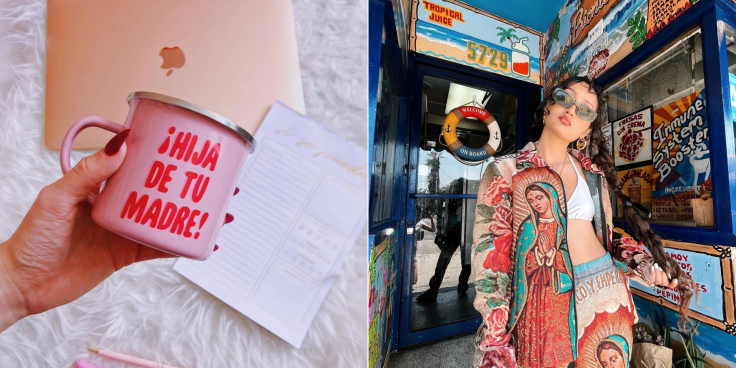
There might not be a more perfect moment to chat with designer Patty Delgado than the week before Mother's Day. Her brand, Hija De Tu Madre, literally translates to "daughter of your mother", an expression that can be used for everything from cursing to expressing pride, the perfect encapsulation of Patty's desire to celebrate "the beautiful mess that is being Latina" with her apparel and accessories.
Behind her colorful, vibrant designs lies a promise to honor mothers, abuelitas and all those familiar elements that remind Latinos of who they are and where they come from. That sentiment is so ingrained in fact that Verizon teamed up with with Patty to launch an exclusive limited-edition mercado bag for this year's Mother's Day, inspired by traditional Spanish tiles and with three words spread across it's front face: MAMI - MADRE - MAMÁ.
"My brand is very much inspired by all the crazy things that my mom has told me throughout the years" she explains. "I think that's what a lot of people that live in the U.S. are looking for: something that reminds them of home. And mothers typically do that."
We sat down with Patty to talk about Latino representation, cultural crossroads and what exactly "loving in Spanish" means.
The following interview has been edited for clarity

How much of your own experience as a daughter of Mexican immigrants goes into your brand?
My parents are a big part of how I got started. I started the brand in my parents living room eight years ago with 500 dollars and my parents were the ones helping me. They took my orders to the post office in the beginning. They're the big inspiration, they're my muse. So much of what they say and where they come from finds itself into my work all the time.
Can you talk about this line that appears on your website that reads "Hija de tu Madre celebrates the beautiful mess that is being Latina and Latinx."
So I was born in L.A. So that is complicated in itself. Am I Mexican? Am I Mexican-American? Am I Chicana? Am I even allowed to call myself Mexican if I wasn't born there? I think that's a very common experience for children of immigrants, this messy coming of age story of who you are. There are so many labels and you try to find which one you belong to.
I have found myself with that own identity crisis and I think I have come to find who I am by creating this brand. I started doing this because I felt like my identity was a mess and I didn't know where I fit in and I think with time and connecting with other people who have felt the same way I've found my way.
So people have connected with that messiness you try to convey with your designs?
Yeah, absolutely. I think that a lot of people gravitate towards the brand because they've been looking for that closeness to culture that they haven't been able to find anywhere else. A lot of our customers work in Corporate America or maybe go to a university in which they're the minority. When they find Hija De Tu Madre it's kind of like what they've been looking for: a sense of home. It's difficult to be bi-cultural at times. Sometimes you have to pick and choose how much of yourself you want to show.
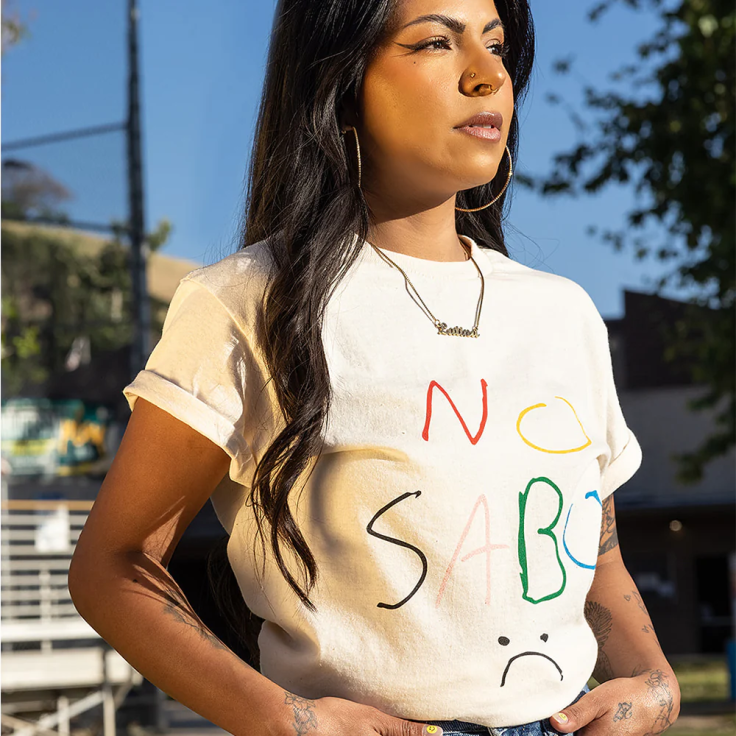
You also have this line on your website which I found to be very interesting: "We're on a mission to show what REAL Latinx representation looks like." What exactly does that mean to you? Is there an "unreal representation" in your mind?
I think a big part of why Verizon wanted to work with us in the first place is because I feel we have an authentic voice and connection. There are a lot of brands that want to speak to the Latino consumer and it's so corny. Abuelitas do not speak Spanglish. I'm just going to stop you right there! There are just so many silly tropes that I think are very antiquated.
When I was growing up, the only representation I had in movies or in film was either Jennifer Lopez as a housekeeper or criminals in crime documentaries. That is not the range of the Latino experience in America. And so I think that that has always been a big part of my driving force with Hija De Tu Madre as well: to show range.
Another thing is that we're not all just Mexican. We're not all just Puerto Rican. So much of South America and Central America gets left out of the conversation. So I've tried to really make space for them through the brand. We have every Latin America Bandera jacket, every Latin America necklace. It's been very important for me to create community with all these people in the diaspora in an authentic way and not just with Cinco de Mayo tropes.
How do you feel your brand is perceived by non-Latinos? Do they engage with it as well?
Well, the brand is called Hija De Tu Madre. The brand is like "if you get it, you get it." and that's kind of always been our ethos: we're not for everybody. I was always told "this is just a niche, you're only going to appeal to your people and you're not going to go very far." Or "there's no money in Latino marketing or in diversity." But we all know now that's not the case. We lead the entrepreneurial growth in this country.
I'm not really interested in overexplaining myself to people who don't want to understand but it is exciting when we see an order come up from Japan or from Dubai or Switzerland. It's cool to think that they really identify with the designs and what we're creating. It feels really beautiful to share your culture with so many other people who appreciate it, but who may not necessarily come from the same place that you do.

One last question. There's this collection you have that's encapsulated by a line that I love that reads "I speak in English, but I love in Spanish." What exactly does that line mean to you?
I just think that Latinos love differently. I don't know how to explain it other than we just grew up on telenovelas, Luis Miguel. All this overly romantic greats. I think that drama has made a really romantic culture. I think it speaks to that bi-cultural experience. I speak English most of the time but my values are still the same, you know. I can't deny that I like the drama that comes with Latin love. Maybe it's a stereotype, but it's definitely true to my experience and it's part of who we are so it's impossible to deny.
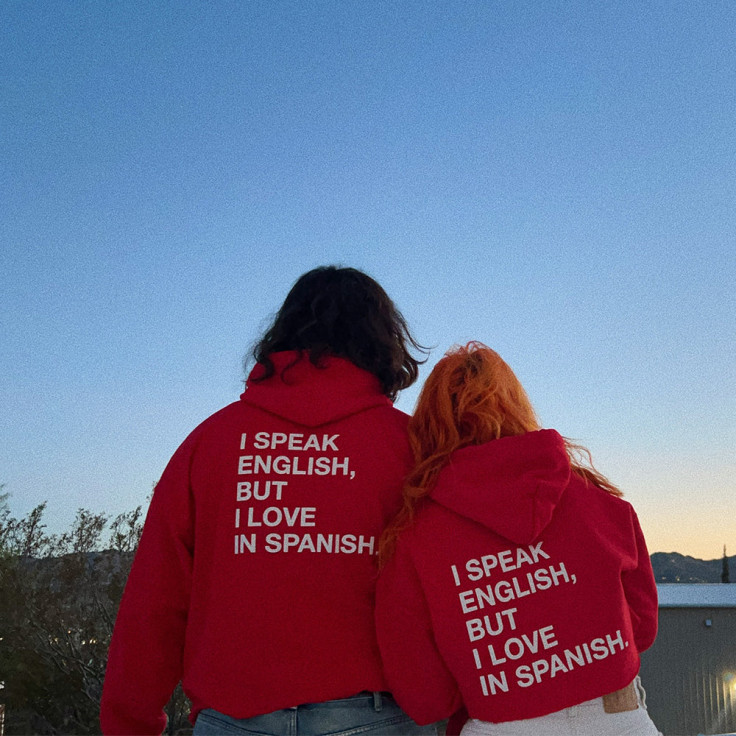
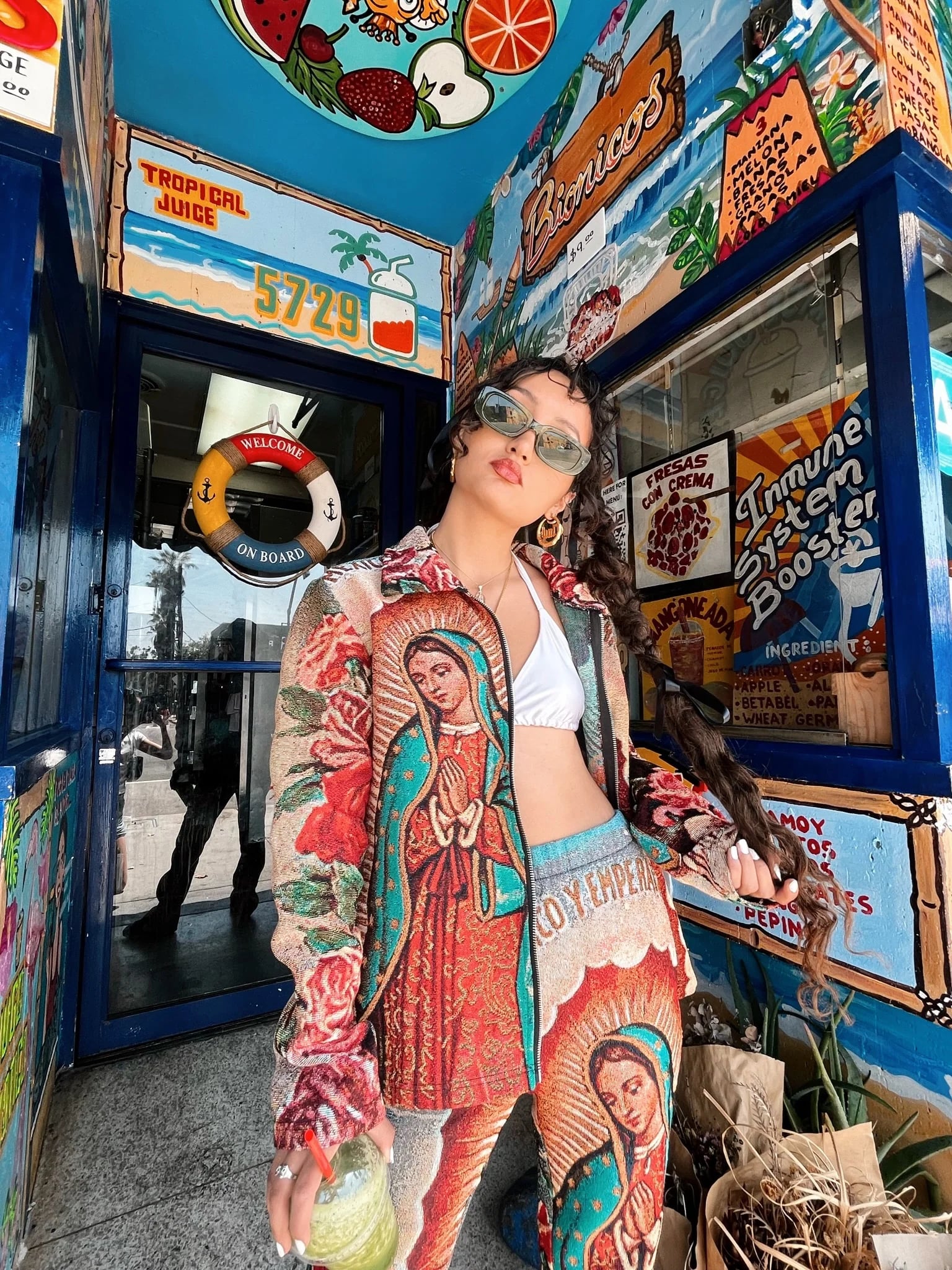

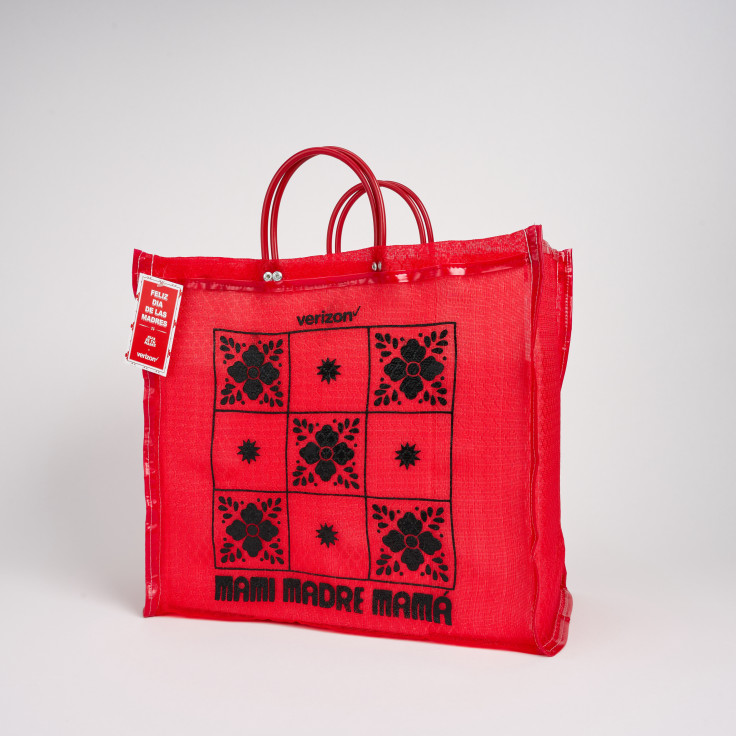
© 2024 Latin Times. All rights reserved. Do not reproduce without permission.







